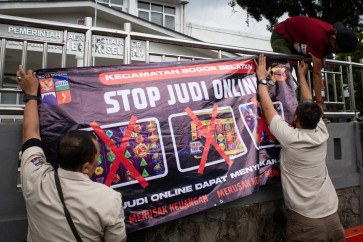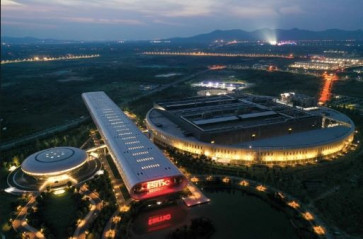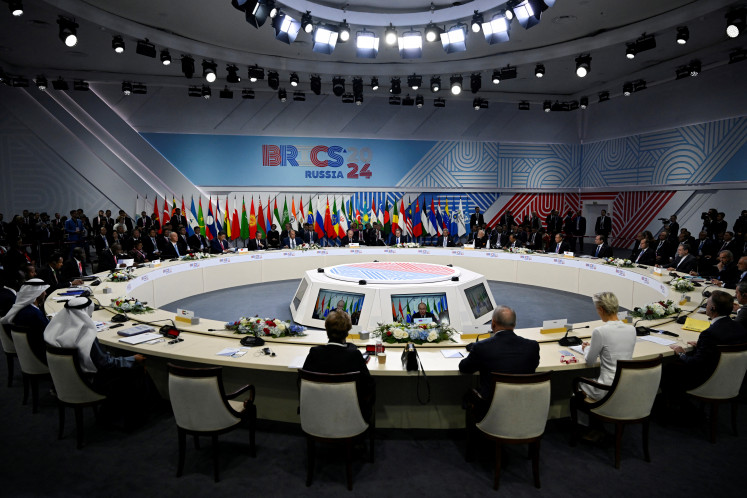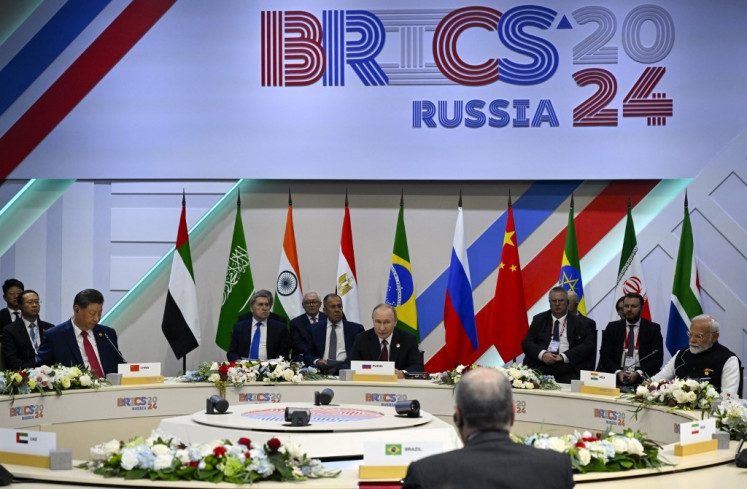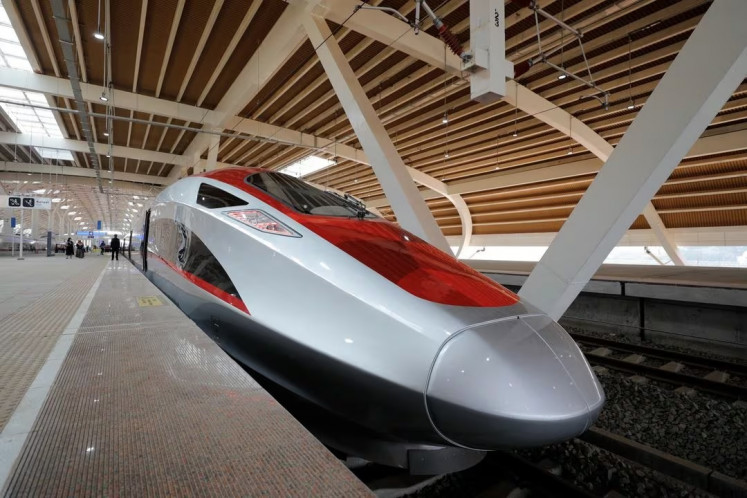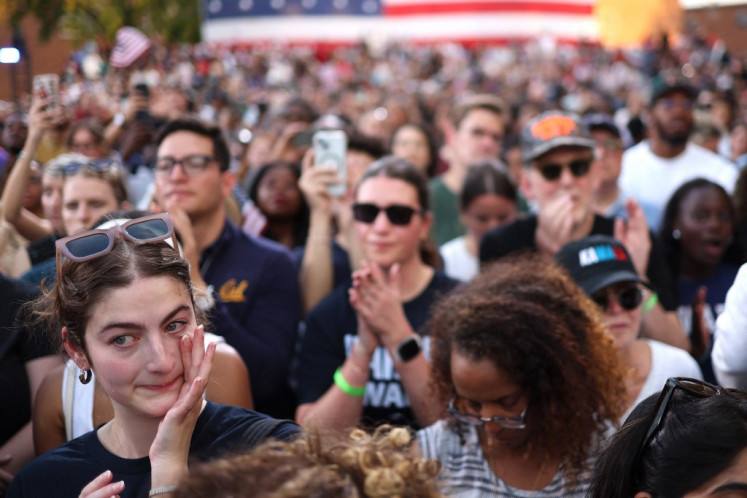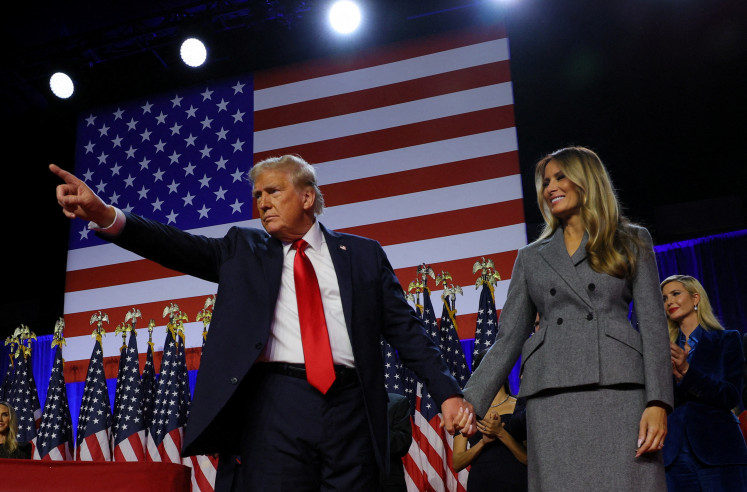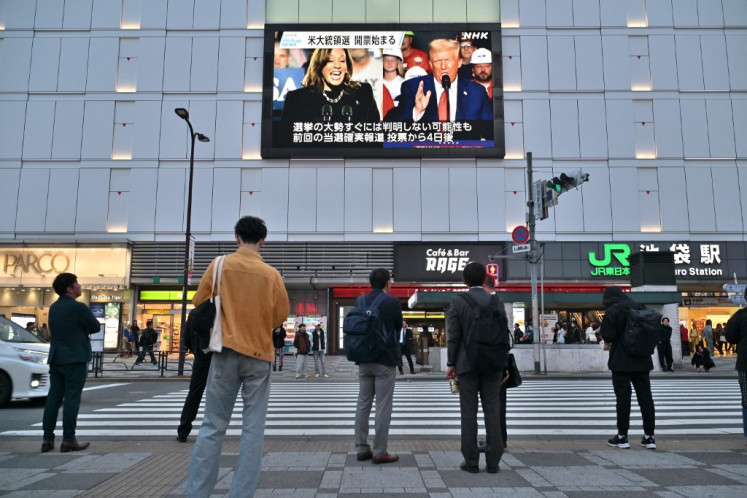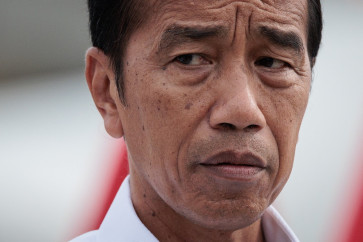Analysis: Is Jokowi losing it?
Change text size
Gift Premium Articles
to Anyone
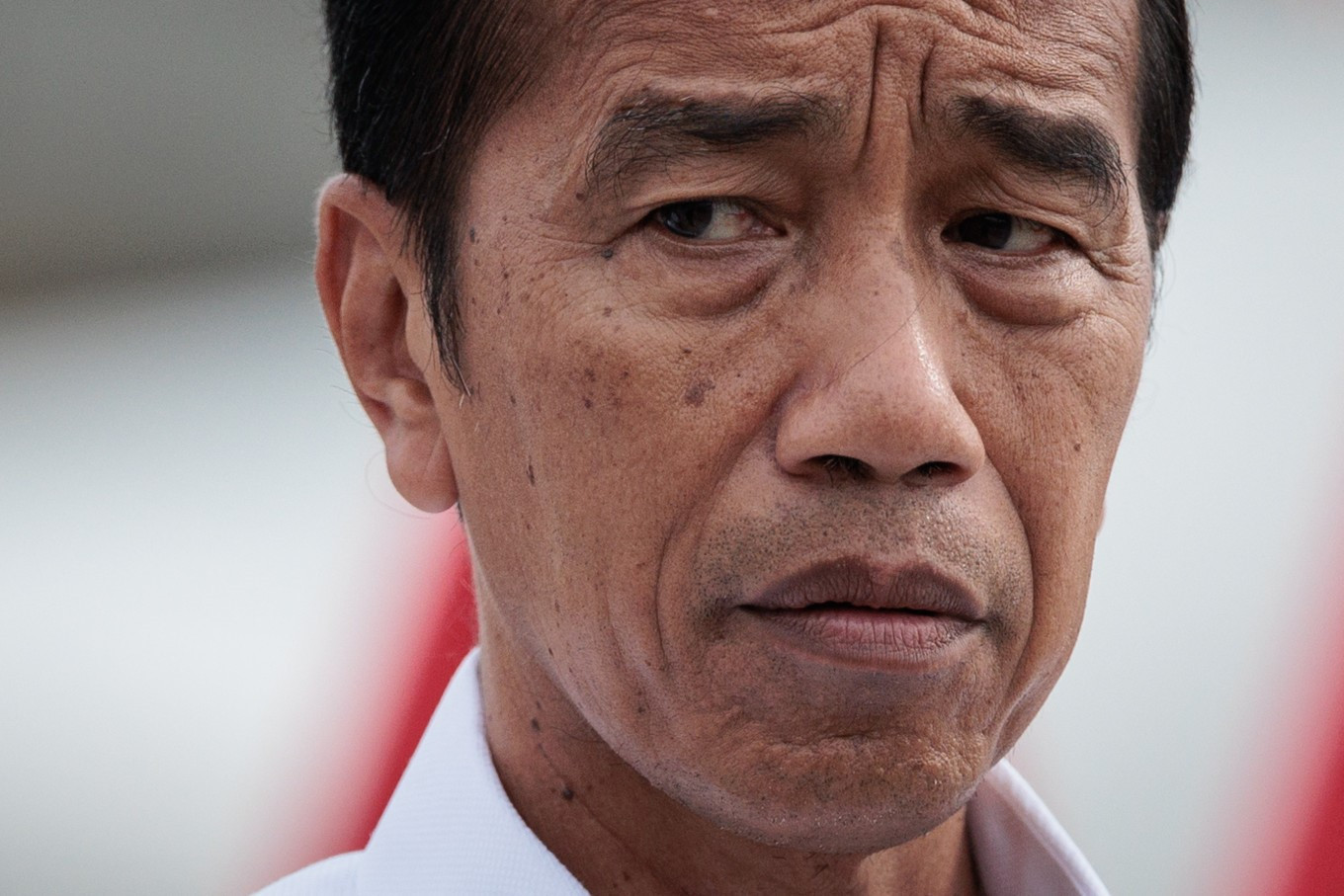 President Joko 'Jokowi' Widodo speaks with the media after the departure ceremony of the National Disaster Management Agency's (BNPB) mission to deliver humanitarian aid, 60 tonnes of medical and hygiene supplies on two planes, to Egypt for Palestinian refugees and Sudan at Halim Perdanakusuma International Airport in Jakarta on April 3, 2024. (AFP/Yasuyoshi Chiba)
President Joko 'Jokowi' Widodo speaks with the media after the departure ceremony of the National Disaster Management Agency's (BNPB) mission to deliver humanitarian aid, 60 tonnes of medical and hygiene supplies on two planes, to Egypt for Palestinian refugees and Sudan at Halim Perdanakusuma International Airport in Jakarta on April 3, 2024. (AFP/Yasuyoshi Chiba)
P
resident Joko “Jokowi” Widodo suffered his first major political defeat, just two months before he steps down, when a popular revolt denied him the chance to field his youngest son to run in the November polls to elect the leaders of regional governments.
Until last week, it looked like nothing could stop Jokowi from building his political dynasty. He controls all major political institutions, from the executive and the legislative branches to the judiciary and the police. Public opinion was also very much behind him, going by his approval ratings in the dying weeks of his reign, with most surveys putting it at above 70 percent.
Last week, spontaneous protests by students and workers in Jakarta and other major cities took the nation’s political elite by surprise, foiling the House of Representatives’ plan to endorse a revision of the Regional Elections Law that would have allowed 29-year-old Kaesang Pangarep, the President’s youngest son, to run in one of the local elections.
Kaesang’s name had been mentioned as a candidate to contest a gubernatorial election, either in Jakarta, a job his father held in 2012-2014, or in Central Java, the home province of the Jokowi clan. Kaesang is also chair of the small Indonesian Solidarity Party (PSI), which his father secured for him last year only two days after he joined.
The planned law revision would also have shut down the chance of former Jakarta governor Anies Baswedan, Jokowi’s political nemesis, to contest the elections.
The Aug. 22 protests, some marred by violence between protesters and police, were massive, forcing the House to reverse its plan less than 24 hours after the majority factions had given support for the amendments. The House plenary meeting for the formal vote was canceled. But the real message from the protesters, openly supported by some of the country’s top universities, was not so much the planned changes to the electoral law as attacking President Jokowi’s maneuvers to use of his power to build his political dynasty that would ensure that he remains powerful after Oct. 20 when he formally ends his second five -year term.
Jokowi’s meddling included getting the Constitutional Court (MK) last year to come up with a ruling that allowed his oldest son Gibran Rakabuming Raka, despite his young age at 36, to contest the February presidential election as running mate to the eventual winner Prabowo Subianto, who is his defense minister. The General Elections Commission (KPU) and the Elections Supervisory Agency quickly got themselves in on the act to ensure that the regulations were changed in time.



